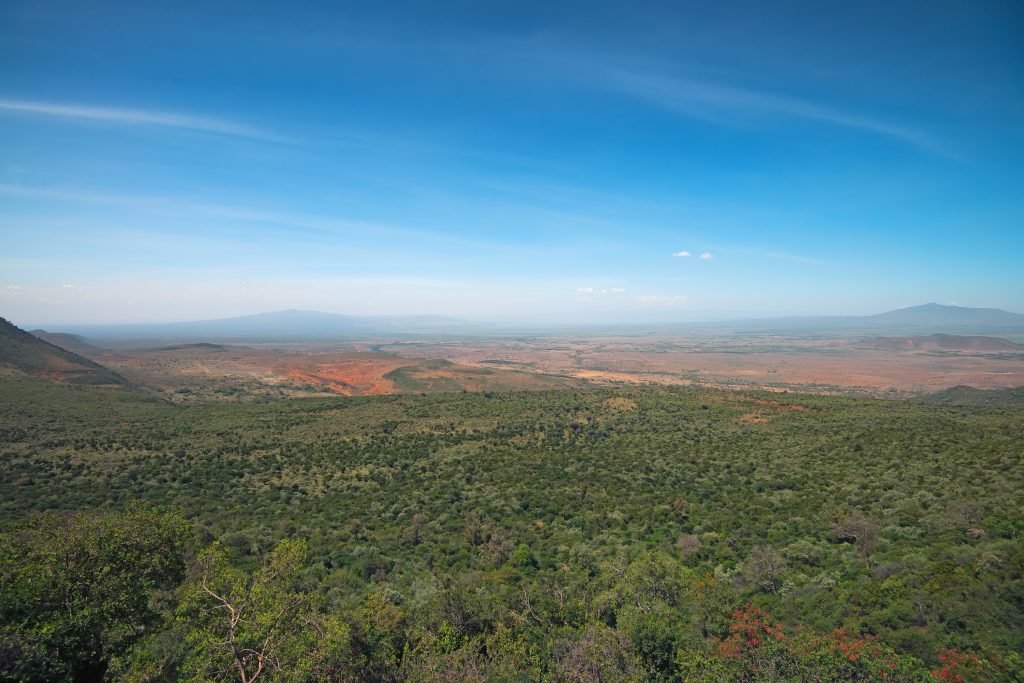SEED Madagascar £500 Donation
We recently donated £500 to Seed Madagascar, as part of our 10% of net profits to charity across the Ten Percent Group (and our 1% for the Planet commitment).
Mark Jacobs, the CEO of Seed Madagascar, has given us the following: “We will use the donation to directly support one of our frontline community led initiatives in southeast Madagascar. Your donation will most likely be directed to our current Programme Sekoly project at Karinoro Primary School, a rural school in southeast Madagascar that urgently needs infrastructure improvements. Your support could fund handwashing stations connected to a new rainwater harvesting system, essential classroom materials and furniture for a newly constructed cyclone-resilient classroom, a portion of a gender-segregated toilet block, essential for privacy, hygiene and female student attendance.”
SEED Madagascar (Sustainable Environment, Education and Development) is an award winning, international NGO that carries out projects exclusively in Madagascar. SEED’s central mission is to enhance the capacity of individuals, communities, organisations and the government in fulfilling sustainable environment, education, and development goals in southeast Madagascar.
Operations are focused in the Anosy region of southeast Madagascar where SEED has a permanent, primary base. Day-to-day operations are led by the Taolagnaro office, in the regional capital of Anosy, under the Director of Programmes and Operations and Deputy Director. SEED prioritises the needs of Anosy communities, and the team reflects this, with 80% of staff members being Malagasy and 97% of all staff based in Madagascar.
Recent Work
Sarisambo Primary and Lower Secondary Schools: the provision of education infrastructure and wash facilities to a total of 726 students and 27 teachers in Sarisambo Primary and Lower Secondary Schools. To enable students to attend full-day classes, SEED repaired an existing primary school building, and constructed one fully furnished three-classroom, and one fully furnished two-classroom school building at the lower secondary school.
To improve teacher attendance, SEED constructed two-room teacher’s accommodation at the lower secondary school. SEED increased safe sanitation access by repairing five existing latrines and constructing five gender-segregated ventilated improved pit (VIPa) latrines at the primary school, and five gender-segregated VIP latrines at the lower secondary school. Both schools received a 10,000-litre capacity rainwater harvesting system which ensures permanent on-site water access and supplies water to the handwashing stations and MHM facilities.
Overall, SEED has constructed a total of 39 school buildings, 89 classrooms, 118 toilettes, teacher accommodation at 12 schools , 16 MHM facilities, 14 rainwater harvesting systems and provided 5,312 student desk-benches, totalling an added student capacity of 42,121 students.
Feedback from People helped by SEED
“I remember sitting on the floor in these same classrooms, because there was not enough space for all of us to sit. I am so happy to see the new buildings completed.” – Lomba, SEED’s Head of Construction
“The old school closed on rainy days because it was too cold and wet inside. I’m excited for the new school because I will be able to go to more classes.” – Student at Andramanaka EPP
“Sometimes I concentrated but when it is cold the floor is not comfortable, but now we have the bench it is very different.” – Student about Project Fanaka
Mosa, Esohihy’s head teacher, wanted to be a teacher since he was a student himself. Being the kid at school in the morning, he spent time helping his classmates with their schoolwork and explaining to them what they did not understand. The high illiteracy rate in his commune further motivated him to pursue his career as a teacher. Now having 11 years of teaching experience, Mosa’s favourite part of the job is spending time with students and sharing his knowledge with them. SEED recently spoke with Mosa, who shared, and heard his thoughts on the new education infrastructure. “There aren’t good enough words to describe my happiness.” The previous day students visited the new school building for the first time, they all entered and sat around on the new benches, something they have not been able to do since he began teaching 11 years ago. “I wish you were there to see it, none of them had ever sat on a bench, they have always been sitting on the ground.” Mosa explained that the new school will bring growth to his community, and he is proud to now be teaching at what is now one of the largest schools in the Mahatalaky commune. He noted that the new infrastructure will allow more students to continue their studies and access careers they wouldn’t otherwise be able to without an education. Mosa is responsible for the entire school and will be living onsite in the newly constructed teacher’s accommodation along with his family. He will look after the facilities and ensure everything is kept well maintained. Given that the school has been built in a central location, if a member of the community needs to speak to him, he will always be there. His wife also plans to set up a shop along the road to further support their livelihoods. He continues to be thankful for his new bicycle, which makes his life much easier.
What are some of the biggest challenges your charity has faced or is currently facing?
a) Climate Change
SEED Madagascar operates in one of the most climate-vulnerable regions of the world – the Anosy region of southeast Madagascar. The communities in this region are increasingly affected by a combination of cyclones, droughts, and erratic rainfall patterns that threaten both lives and livelihoods. At the beginning of this year, Cyclone Jude caused significant damage across southeastern Madagascar. These events are becoming more frequent and more intense, driven by global climate change and warming ocean temperatures. School buildings, health centres, and community infrastructure are often left damaged or destroyed, disrupting access to education and essential services. In response, SEED has started to adapt its projects – like the cyclone-resilient classrooms and WASH infrastructure at Karinoro Primary School – to build long-term resilience and help communities withstand future shocks. Nevertheless, the growing frequency and severity of climate events pose a significant challenge.
b) Funding Volatility
At the same time, ongoing funding cuts to international development budgets by major donor governments including the UK, the USA, Germany, and several other EU countries pose a significant challenge. Rising inflation and currency volatility are added to this. Therefore, SEED relies increasingly on diverse and flexible funding streams, and donations from organisations like yours are increasingly vital in helping us maintain stability.
Other projects
Project Phelsuma – Saving the Critically Endangered Phelsuma antanosy

Gecko – Project Phelsuma

Red Collared Brown Lemur – Project Ala
SEED is working to save one of the rarest geckos in the world. Phelsuma antanosy is a critically endangered species of geckos found only in a 9 km² area in the Sainte Luce littoral forest of southeast Madagascar. The species faces extinction-level threats due to ongoing habitat loss and planned mining operations. SEED’s team observed Phelsuma antanosy eggs laid on Pandanus longistylus plants – offering valuable insight into the gecko’s reproductive behaviour and ecological needs. Currently, SEED is exploring the translocation of at-risk subpopulations to protected forest corridors restored through Project Ala, combining reforestation with species preservation – a rare, innovative approach. In April 2024, SEED recorded the first ever video footage of P. antanosy mating behaviour.
Full details of Project Phelsuma –
https://madagascar.co.uk/projects/environment/phelsuma
Project Ala – Restoring Lemur Habitat in Fragmented Forests
The Sainte Luce forest is home to multiple endangered lemur species, including Anosy mouse lemur, fat-tailed dwarf lemur and collared brown lemur. However, lemurs cannot cross open land and are thus unable to travel between forest fragments, which isolates population. Consequently, SEED is reconnecting forest fragments through the creation of eight forest corridors using native plant species, allowing lemurs to move safely and breed across a wider habitat range. Despite devastating forest fires at the beginning of the year, SEED’s Ala Phase 3 made significant progress in habitat restoration, seedling propagation, and community engagement, and there have already been multiple lemur sightings in SEED’s forest corridors. Local landowners and volunteers are trained to plant and monitor native trees. In 2024 alone, SEED planted over 7,800 native trees in restored forest corridors.
Full details of Project Ala –
https://madagascar.co.uk/projects/environment/ala
Charity Size
2024: 99 Employees, 9 Trustees, 20 Volunteers.
With 97% of our staff based in Madagascar and 80% Malagasy nationals, we are deeply rooted in the communities we serve. SEED has two additional teams, one operating in the Malagasy capital of Antananarivo and a second, small team of UK-based remote staff. The charity is overseen by a board of nine trustees who meet, together with the Managing Director on a quarterly basis to discuss and determine strategic, financial, and operating requirements. SEED is multi-disciplinary team of national and international members who bring local knowledge, scientific research, best practice, and inclusive community engagement expertise to the organisation.
What direction do you see the charity heading toward in the next few years and beyond?
SEED aims to deepen our impact through long-term programmatic work, foster innovation in climate resilience and conservation, deepen programmatic focus on climate adaptation and resilience, expand impact monitoring and learning and maintain locally-led, high-quality delivery Build new meaningful partnerships with funders.



